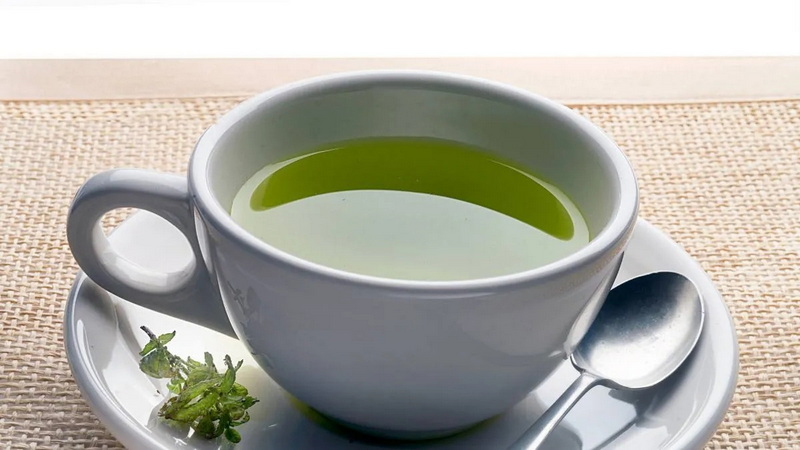Content Menu
● Introduction to Green Tea Extract
>> Components of Green Tea Extract
● Health Benefits of Green Tea Extract
>> Weight Management
>> Cardiovascular Health
>> Antioxidant Properties
>> Anti-Inflammatory Effects
● Effects of a 50 Mg Dose
>> Potential Side Effects
>> Interactions with Other Nutrients
● How to Incorporate Green Tea Extract into Your Diet
>> Tips for Choosing a Green Tea Extract Supplement
● Conclusion
● FAQs
>> 1. What are the primary components of green tea extract?
>> 2. Can green tea extract aid in weight loss?
>> 3. What are the cardiovascular benefits of green tea extract?
>> 4. Are there any potential side effects of green tea extract?
>> 5. How much green tea extract is typically used in studies?
● Citations:
Green tea extract has gained significant attention in recent years due to its potential health benefits, which range from aiding in weight loss to improving cardiovascular health. A dose of 50 mg of green tea extract is often considered a starting point for those interested in exploring its effects. In this article, we will delve into the components and benefits of green tea extract, focusing on what a 50 mg dose can offer.

Introduction to Green Tea Extract
Green tea extract is primarily composed of catechins, a type of polyphenol antioxidant, with epigallocatechin gallate (EGCG) being the most prominent. These compounds are believed to contribute to the extract's health benefits, including antioxidant properties and potential weight management effects.
Components of Green Tea Extract
- Catechins: These are the primary antioxidants in green tea extract, with EGCG being the most studied.
- Caffeine: While less than in coffee, green tea extract contains some caffeine, which can contribute to its stimulatory effects.
- Other Polyphenols: Besides catechins, green tea extract includes other polyphenols that may enhance its health benefits.
Health Benefits of Green Tea Extract
Weight Management
Green tea extract is often associated with weight loss due to its potential to increase thermogenesis and fat oxidation. Studies have shown that it can enhance energy expenditure and reduce the respiratory quotient, indicating increased fat burning. This effect is thought to be partly due to the caffeine content, which can increase metabolism, and partly due to the catechins, which may influence fat cell metabolism.
Cardiovascular Health
Research suggests that green tea extract can improve cardiovascular health by reducing total cholesterol, LDL cholesterol, and fasting blood sugar levels, while increasing HDL cholesterol. These effects are beneficial for reducing the risk of heart disease and stroke. The antioxidants in green tea extract may also help protect against oxidative stress in the cardiovascular system.
Antioxidant Properties
Green tea extract is rich in antioxidants, which help protect against oxidative stress and may reduce the risk of certain diseases, including cancer and neurodegenerative disorders. The high antioxidant capacity of green tea extract can also contribute to its anti-aging effects.
Anti-Inflammatory Effects
In addition to its antioxidant properties, green tea extract has been shown to have anti-inflammatory effects. This can be beneficial for reducing inflammation in the body, which is associated with various chronic diseases.

Effects of a 50 Mg Dose
A 50 mg dose of green tea extract is relatively low compared to some studies, which often use doses of 375 mg or more of catechins. However, even at lower doses, green tea extract may still offer some benefits:
- Antioxidant Activity: Even small doses can contribute to antioxidant capacity.
- Sympathetic Activation: May help increase metabolism and fat burning, though effects might be modest.
Potential Side Effects
While generally safe, green tea extract can cause side effects like jitteriness or increased heart rate, especially in those sensitive to caffeine. It is also important to note that high doses of green tea extract may interact with certain medications, such as blood thinners, due to its vitamin K content.
Potential Side Effects of Green Tea Extract
| Side Effect | Description |
| Jitteriness | Common in high doses or caffeine sensitivity |
| Increased Heart Rate | Due to caffeine content |
| Headache | Rare but possible |
Interactions with Other Nutrients
Green tea extract can interact with other nutrients and supplements. For example, it may enhance the effects of caffeine when taken together with coffee or other caffeinated beverages. Additionally, green tea extract may reduce the absorption of iron from plant-based foods due to its polyphenol content.
How to Incorporate Green Tea Extract into Your Diet
Incorporating green tea extract into your diet can be straightforward. It is available in capsule or tablet form and can be taken with meals to enhance absorption. Some people also add green tea extract to smoothies or other beverages for convenience.
Tips for Choosing a Green Tea Extract Supplement
When selecting a green tea extract supplement, consider the following:
- Catechin Content: Look for products with a high EGCG content.
- Caffeine Content: If you are sensitive to caffeine, choose a decaffeinated option.
- Brand Reputation: Opt for reputable brands that ensure purity and potency.
Conclusion
In conclusion, a 50 mg dose of green tea extract may offer some health benefits, particularly in terms of antioxidant activity and potential weight management effects. However, the extent of these benefits can vary based on individual factors and the presence of other nutrients in the diet. Always consult with a healthcare provider before starting any new supplement regimen.

FAQs
1. What are the primary components of green tea extract?
Green tea extract is primarily composed of catechins, particularly EGCG, along with some caffeine and other polyphenols.
2. Can green tea extract aid in weight loss?
Yes, green tea extract may help with weight loss by increasing thermogenesis and fat oxidation, though effects are generally modest.
3. What are the cardiovascular benefits of green tea extract?
Green tea extract can improve cardiovascular health by reducing cholesterol and blood sugar levels while increasing HDL cholesterol.
4. Are there any potential side effects of green tea extract?
Yes, potential side effects include jitteriness, increased heart rate, and headache, especially in those sensitive to caffeine.
5. How much green tea extract is typically used in studies?
Studies often use doses of 375 mg or more of catechins, though benefits may still be observed at lower doses.
Citations:
[1] https://pubmed.ncbi.nlm.nih.gov/10584049/
[2] https://www.frontiersin.org/journals/nutrition/articles/10.3389/fnut.2022.1084455/full
[3] https://www.sohu.com/a/846632226_121124322
[4] https://www.healthline.com/nutrition/10-benefits-of-green-tea-extract
[5] https://pubmed.ncbi.nlm.nih.gov/38031409/
[6] https://pmc.ncbi.nlm.nih.gov/articles/PMC8664505/
[7] https://www.webmd.com/vitamins/ai/ingredientmono-960/green-tea
[8] https://pmc.ncbi.nlm.nih.gov/articles/PMC6412948/






























